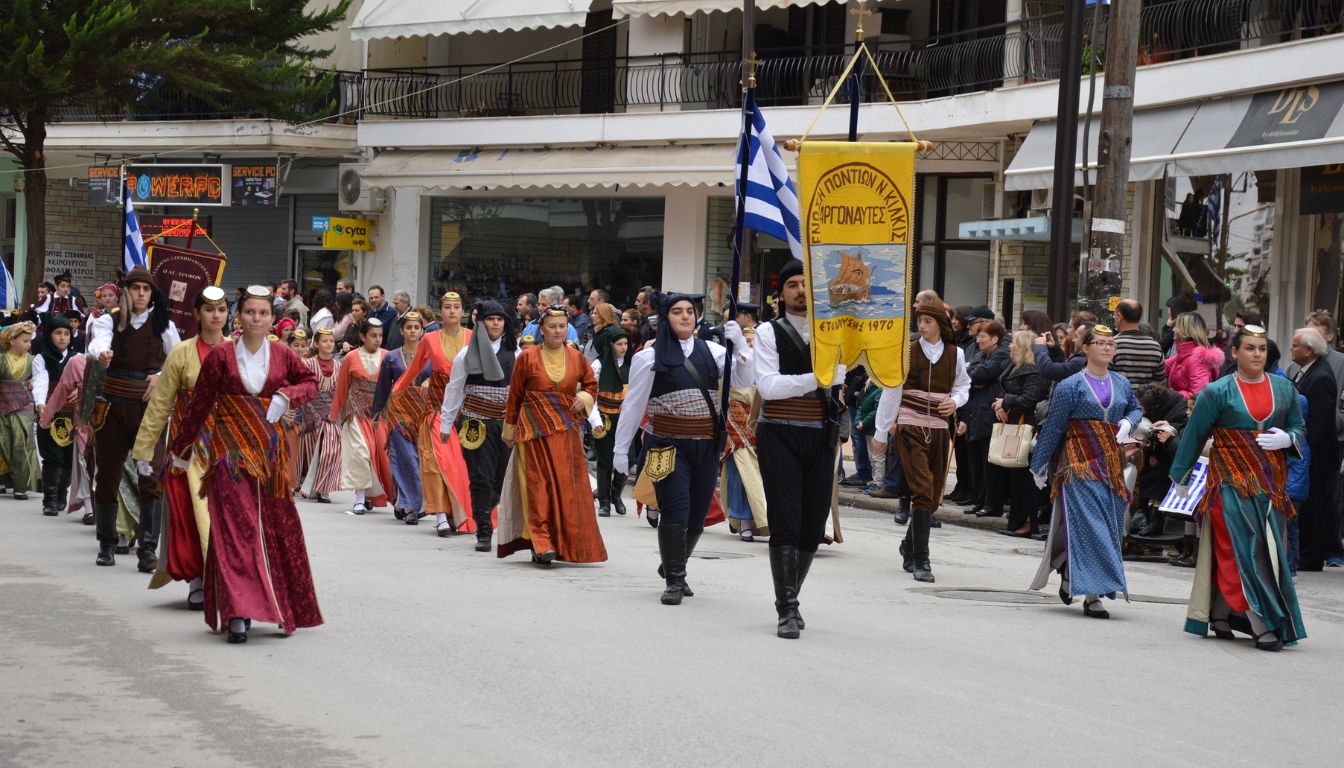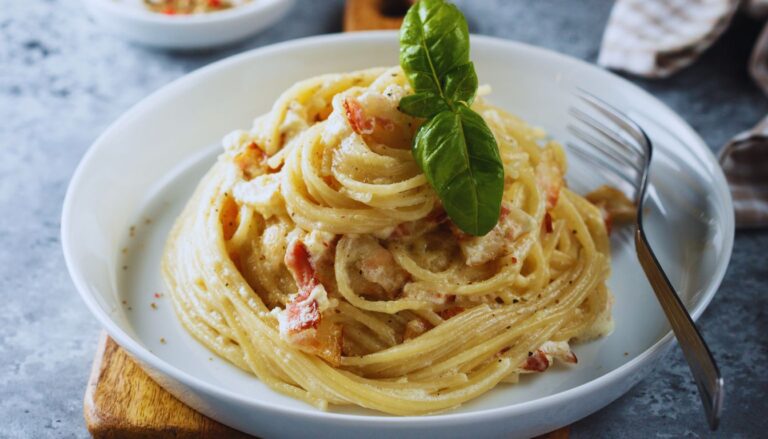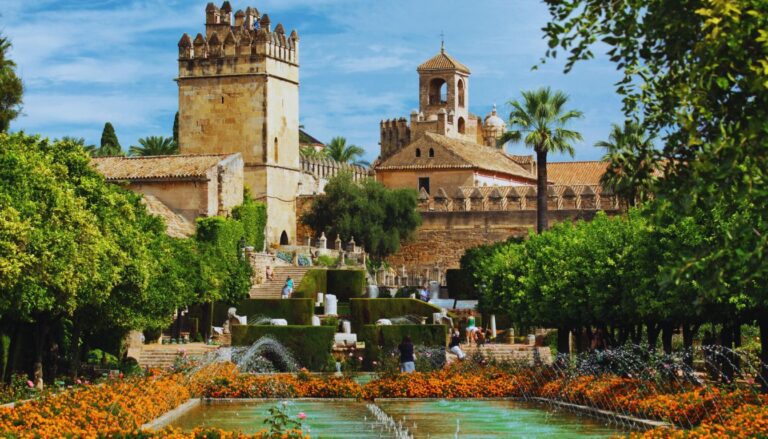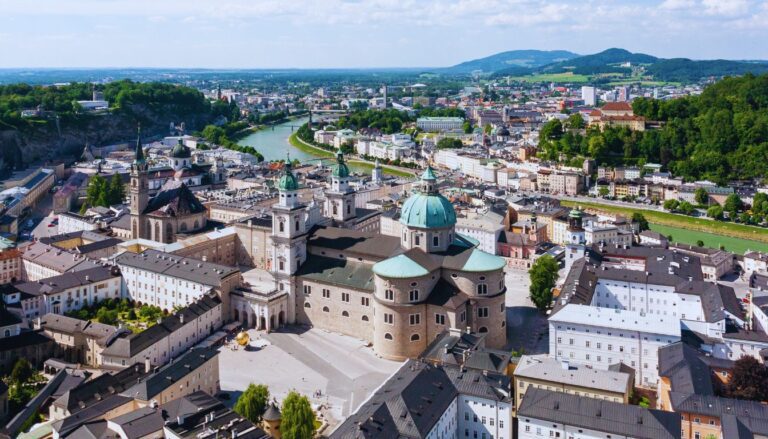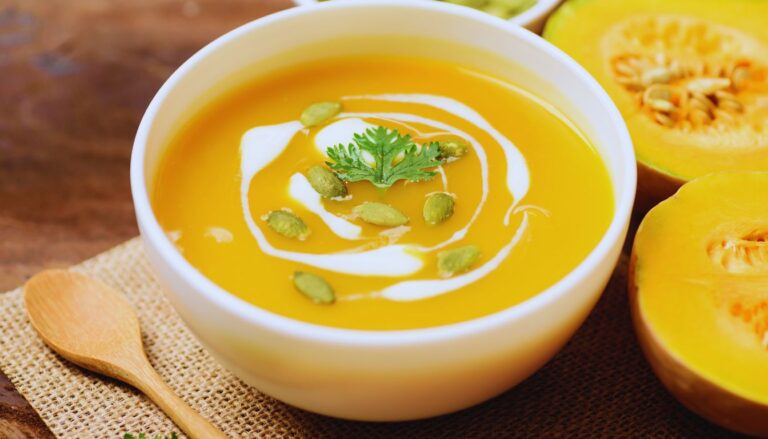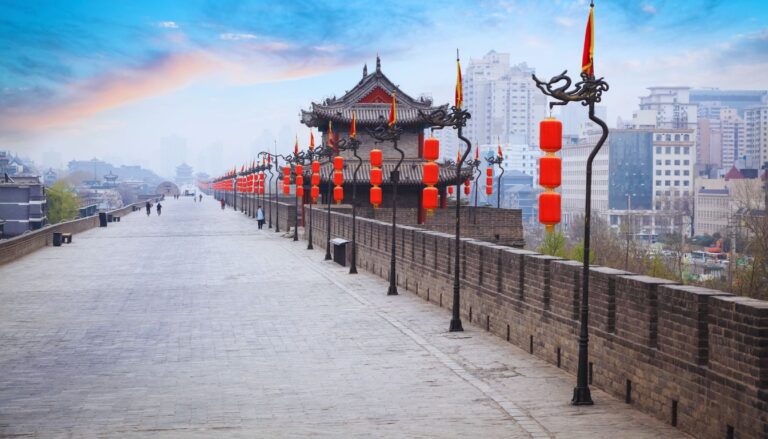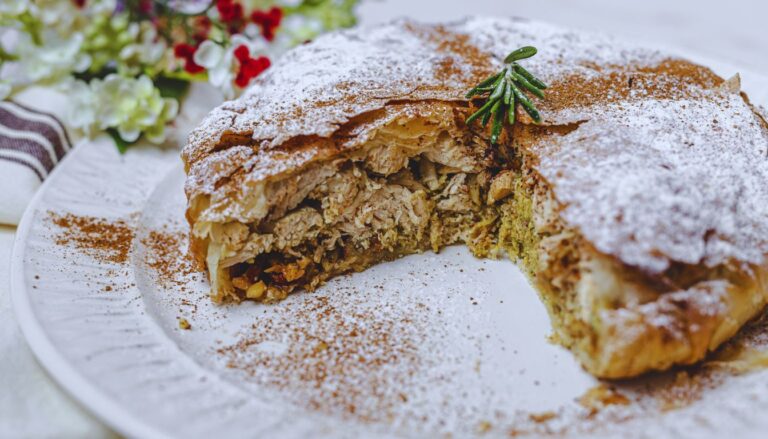Greek festivals and celebrations are vibrant expressions of the country’s rich cultural heritage, religious traditions, and historical significance. These events, both ancient and modern, play a crucial role in Greek society, bringing communities together and preserving customs that have been passed down through generations. From the solemnity of religious observances to the joyous revelry of national holidays, Greek festivals offer a fascinating glimpse into the heart of Greek culture.
This article explores some of the most important and widely celebrated festivals in Greece, examining their origins, traditions, and significance in modern Greek life. Whether you’re planning a trip to Greece or simply interested in learning more about Greek culture, understanding these festivals will provide valuable insights into the Greek way of life.
Table of Contents
Greek Orthodox Easter: The Biggest Celebration
Greek Orthodox Easter, or Pascha, is the most important religious holiday in Greece. It’s a time of spiritual reflection, family gatherings, and joyous celebration. The Easter festivities in Greece often last for an entire week, known as Holy Week, leading up to Easter Sunday.
Key elements of Greek Easter celebrations include:
- Holy Week services: Churches hold daily services, with particularly important ones on Good Friday and Holy Saturday.
- Midnight Resurrection service: On Saturday night, people gather at churches holding candles. At midnight, the priest announces “Christos Anesti” (Christ is Risen), and everyone responds “Alithos Anesti” (Truly, He is Risen).
- Cracking red eggs: People play a game where they tap red-dyed eggs against each other. The person whose egg doesn’t crack is said to have good luck.
- Easter feast: On Easter Sunday, families and friends gather for a large feast, often featuring roast lamb on a spit.
- Tsoureki: This is a sweet Easter bread often decorated with red eggs.
Greek Easter is a time when even non-religious Greeks often participate in traditions, highlighting its cultural as well as spiritual significance.
Carnival (Apokries): Three Weeks of Festivities
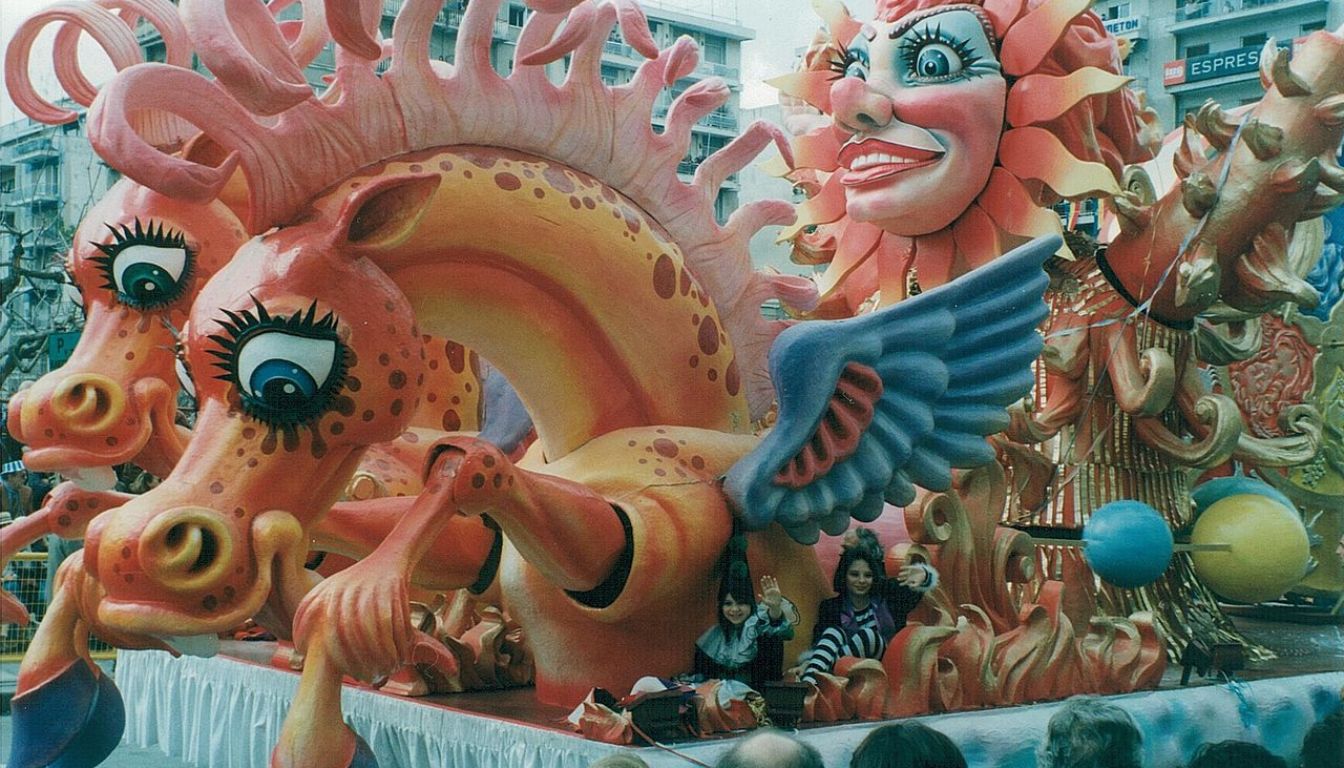
Apokries, the Greek equivalent of Carnival, is a festive season that lasts for three weeks leading up to the beginning of Lent. It’s a time of masquerades, parades, and feasting before the fasting period of Lent begins.
The Carnival season includes:
- First week (Profoní): The “announcement” week when people start preparing for the festivities.
- Second week (Kreatini): The “meat week” when people consume a lot of meat before the upcoming fasting period.
- Third week (Tyriní): The “cheese week” when dairy products are consumed.
Each town and village has its own Carnival traditions, but some of the most famous celebrations take place in Patras, Xanthi, and Skyros. People dress up in costumes, participate in parades, and enjoy special foods like grilled meats and sweet fried dough balls called loukoumades.
Greek Independence Day: Celebrating Freedom
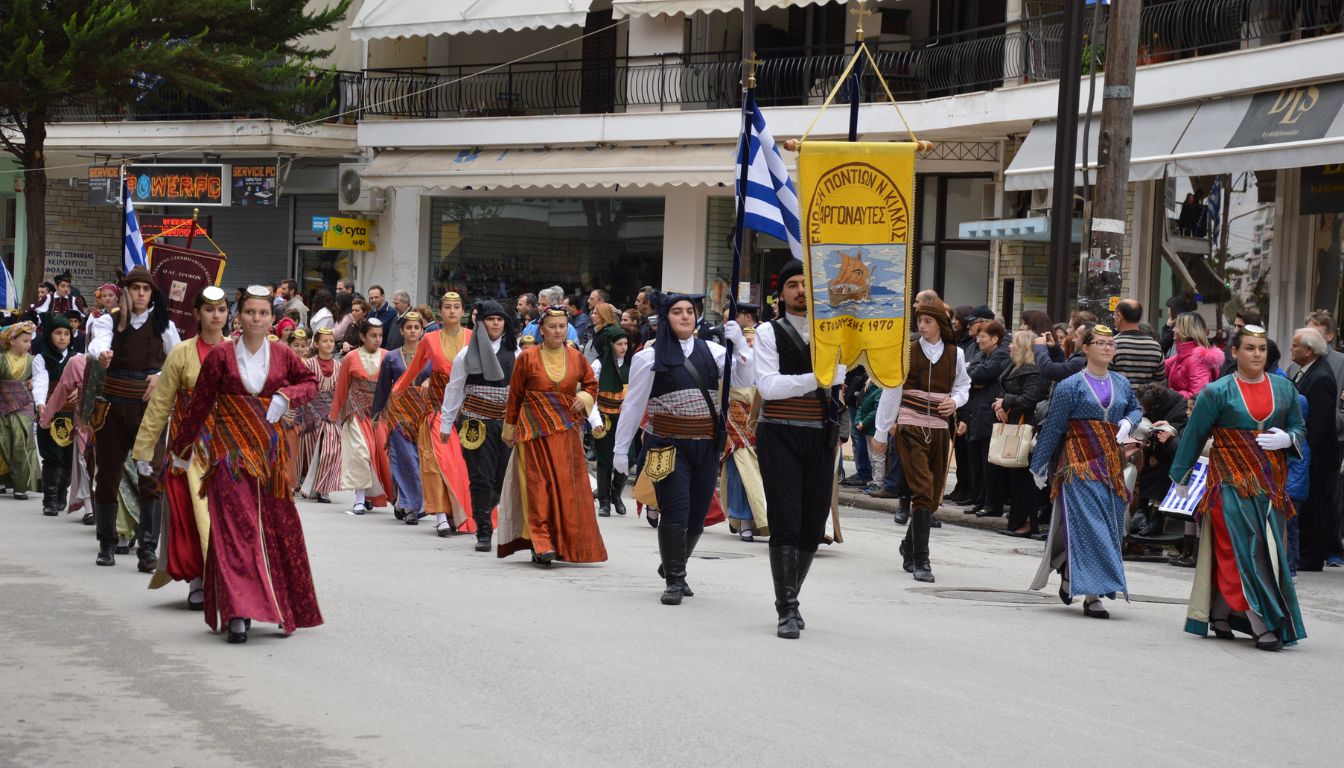
March 25th marks Greek Independence Day, commemorating the start of the War of Greek Independence in 1821. This national holiday is celebrated with great pride and patriotism throughout Greece and in Greek communities around the world.
Celebrations typically include:
- Military and school parades: Towns and cities across Greece hold parades featuring military units, schools, and civic organizations.
- Flag displays: The blue and white Greek flag is prominently displayed on buildings and carried in parades.
- Traditional costumes: Many people wear traditional Greek costumes to honor their heritage.
- Special church services: As March 25th also coincides with the Feast of the Annunciation in the Greek Orthodox calendar, special church services are held.
- Family gatherings: Many families come together for festive meals, often featuring traditional dishes like bakaliaros (fried cod) and skordalia (garlic sauce).
This day serves as a reminder of Greece’s struggle for independence and its rich cultural heritage.
Ohi Day: Remembering Resistance
Ohi Day, celebrated on October 28th, commemorates Greece’s refusal to allow Axis forces to occupy the country during World War II. The name comes from the Greek word “ohi,” meaning “no,” which was supposedly the response of Prime Minister Ioannis Metaxas to the Italian ultimatum in 1940.
Celebrations of Ohi Day include:
- Military parades: Similar to Independence Day, military parades are held in major cities.
- School parades: Students march in parades, often carrying Greek flags.
- Wreath-laying ceremonies: Officials lay wreaths at war memorials to honor those who fought.
- Patriotic songs and speeches: Schools and community organizations often hold events featuring patriotic music and speeches about Greek history.
Ohi Day serves as a reminder of Greek resilience and the country’s contribution to the Allied effort in World War II.
Panigiri: Local Saint’s Day Festivals
Panigiria are local festivals held throughout Greece to honor the patron saint of a town or village. These festivals are deeply rooted in Greek Orthodox tradition but have also become important social and cultural events.
Key features of a panigiri include:
- Religious ceremonies: A church service is held to honor the saint.
- Processions: In many places, an icon of the saint is carried through the streets.
- Music and dancing: Traditional Greek music and dancing are central to these celebrations.
- Food and drink: Local specialties are often served, and there’s usually plenty of wine.
- Market stalls: Many panigiria feature stalls selling local products, handicrafts, and religious items.
These festivals provide an opportunity for communities to come together, maintain traditions, and celebrate their local identity.
The Feast of the Assumption: Honoring the Virgin Mary
The Feast of the Assumption of the Virgin Mary, celebrated on August 15th, is one of the most important religious holidays in Greece. This day honors the Christian belief of the bodily taking up of the Virgin Mary into Heaven at the end of her earthly life.
Celebrations for this feast include:
- Church services: Special services are held in churches dedicated to the Virgin Mary.
- Pilgrimages: Many Greeks make pilgrimages to important Marian shrines, such as the church of Panagia Evangelistria on the island of Tinos.
- Feasts and festivals: Many towns and villages hold festivals featuring food, music, and dancing.
- Boat blessings: In coastal and island communities, there are often ceremonies to bless fishing boats and vessels.
This holiday is so significant that in many parts of Greece, it’s referred to simply as “Dekapentavgoustos” (The Fifteenth of August).
Clean Monday: The Start of Lent
Clean Monday, or “Kathara Deftera,” marks the beginning of the Orthodox Lent period. Despite being the start of a fasting period, it’s celebrated with outdoor excursions, special foods, and the flying of kites.
Traditions associated with Clean Monday include:
- Kite flying: People gather in parks or on hillsides to fly kites, a symbol of spiritual ascension.
- Lenten foods: Special foods that comply with fasting rules are eaten, including “lagana” (a special flatbread), seafood, and vegetables.
- Outdoor picnics: Families and friends often have picnics or excursions to the countryside.
- Burning of carnival effigies: In some areas, carnival figures are burned to symbolize the end of the carnival period.
Clean Monday serves as a transition from the exuberance of Carnival to the solemnity of Lent.
Name Day Celebrations: A Personal Touch
In Greek culture, name days – the feast day of the saint after whom a person is named – are often celebrated more widely than birthdays. Almost every day on the Greek Orthodox calendar is dedicated to a saint or martyr.
Name day celebrations typically involve:
- Open houses: The person celebrating their name day often holds an open house where friends and family can visit throughout the day.
- Treats and small gifts: Visitors might bring small gifts, while the person celebrating offers treats to their guests.
- Wishes: People offer wishes for “Chronia Polla” (Many Years) to the person celebrating.
- Church attendance: Some people choose to attend church on their name day.
This tradition highlights the strong connection between Greek Orthodox faith and daily life in Greece.
Modern Festivals: Blending Old and New
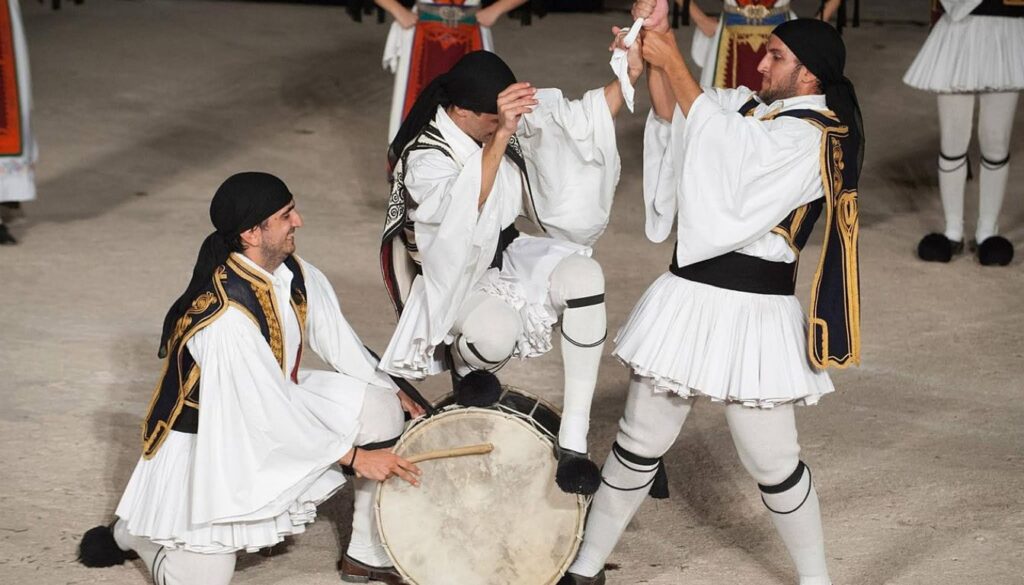
While traditional religious and historical festivals remain important, Greece has also embraced more modern cultural festivals. These events often blend traditional Greek culture with contemporary art forms and international influences.
Some notable modern Greek festivals include:
- Athens & Epidaurus Festival: An annual summer festival featuring theater, dance, and music performances in ancient venues like the Odeon of Herodes Atticus.
- Rockwave Festival: A major rock music festival held annually near Athens.
- Thessaloniki International Film Festival: One of the most important film festivals in Southeast Europe.
- Kalamata International Dance Festival: A summer festival celebrating contemporary dance.
These modern festivals showcase Greece’s vibrant contemporary culture while often paying homage to its rich artistic heritage.
The Role of Food in Greek Festivals
Food plays a central role in Greek festivals and celebrations. Many holidays have specific foods associated with them, and sharing meals is an important part of how Greeks come together to celebrate.
Some examples of festival foods include:
- Easter: Roast lamb, red-dyed eggs, and tsoureki (sweet bread)
- Christmas: Christopsomo (Christ’s bread) and melomakarona (honey cookies)
- Clean Monday: Lagana bread, taramasalata (fish roe dip), and seafood
- Name Days: A variety of sweets and savory snacks for visitors
The preparation and sharing of these special foods are integral to the festive experience, reinforcing social bonds and cultural traditions.
Conclusion
Greek festivals and celebrations offer a vibrant window into the country’s rich cultural tapestry. From the solemnity of religious observances to the exuberance of national holidays, these events showcase the values, beliefs, and traditions that have shaped Greek society for millennia.
Whether it’s the nationwide celebration of Easter, the local charm of a village panigiri, or the contemporary flair of modern cultural festivals, these events play a crucial role in maintaining Greek cultural identity. They serve as a bridge between past and present, helping to preserve ancient traditions while also evolving to reflect the changing face of modern Greece.
For visitors to Greece, participating in these festivals can provide an immersive cultural experience, offering insights into Greek history, religion, and way of life. For Greeks themselves, these celebrations are a vital part of their cultural heritage, reinforcing community bonds and providing a sense of continuity with their ancestors.
As Greece continues to navigate the challenges of the modern world, its festivals and celebrations remain a powerful expression of national identity and cultural pride. They remind us that despite changes and challenges, the spirit of Greek culture – with its emphasis on community, tradition, and joyous celebration – remains vibrantly alive.

